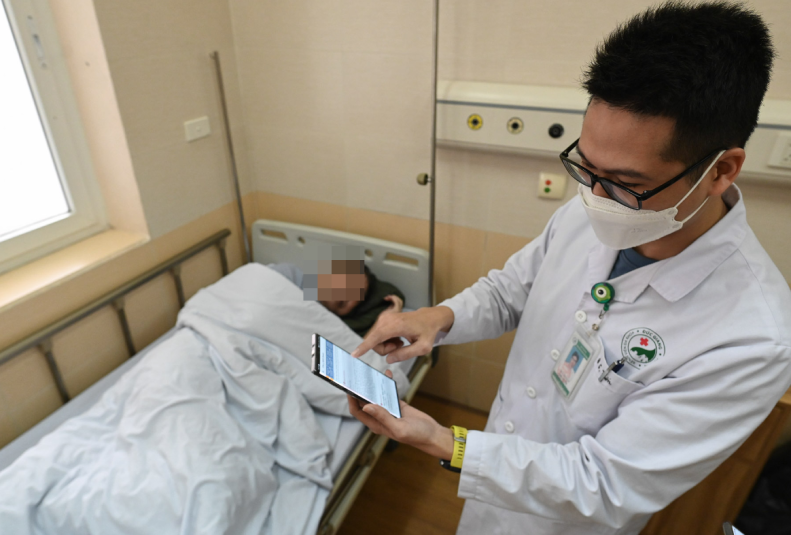
“Save lives first, collect fees later. How can doctors bear this if patients abscond? They exhaust themselves saving lives, only to end up covering the fees,” Nguyen Thanh Dung, a reader, wrote to VietNamNet.
Nguyen Van Toan, a medical worker who is about to retire, receives VND13 million a month in salary. On peak days, he can sleep only 2-3 hours and sometimes doesn’t sleep at all. However, the biggest problem is occasionally having to cover hospital fees for patients.
In many cases, patients abscond not because they are poor and don’t have money. Reader Thanh Ha recalled: “A patient demanded quick treatment to return home for Tet holiday but then absconded without paying. When I visited their home, I saw that it was well-furnished, yet I had to make three trips to recover the fees.”
Reader Dangthuhuong said she once had to ask for help from the police, but she succeeded only when the patient was readmitted to hospital. Such cases reveal a lack of responsibility of many people.
One reader suggested that hospitals allocate 1-2 percent of their budget to create a contingency fund for absconding patients or those unable to pay. This fund could combine internal allocations with community donations. “I believe society would support the fund,” the reader said.
Reader An Tam proposed using taxes to establish a social welfare fund, relieving hospitals and doctors of financial worries so they can focus on their expertise.
Reader Le Minh suggested that local authorities need to support hospitals in building a fund, calling on people to take health insurance policies, and imposing sanctions on cases of intentional evasion of hospital fees. Putting all the responsibility on the hospital is unfair.
Meanwhile, reader Nguyen thinks that establishing a charity fund might not be feasible in many localities. Lower-tier hospitals in remote localities lack resources and support from businesses. So, such a fund could only be established with contributions from medical workers, which is not a sustainable solution.
Reader Chien, an officer in the healthcare sector, said that requiring doctors to cover fees for absconding patients is unreasonable.
“Understanding leaders will not impose this burden on medical workers, but rigid ones will make staff bear it fully. This shows disparities in handling the same problem between large hospitals with strong social work departments and under-resourced lower-tier ones,” he said.
To address the problem to the every root, reader Tran Luu Ninh proposed that the state give financial support in hospital fees for disadvantaged patients, showing care for vulnerable groups of people in society.
While waiting for the state budget to become big enough to exempt hospital fees for all people, solutions such as reserve funds, strengthening health insurance and coordination between hospitals, localities and the community are necessary steps.
Doctors need to focus on work
Dr Quan The Dan, former Head of the Planning Department at Tue Tinh Hospital also said many healthcare workers have to offer compensation in cases of financial losses (patients don’t pay, social insurance agencies disallow certain expenses) which has long been a burden.
Believing that it is a common problem in the healthcare sector, Dan said: “If a comprehensive investigation were launched, I believe many healthcare workers would provide evidence and share their stories. I’ve had to cover such costs myself and still keep the proof.”
When losses are significant, doctors can appeal to hospital directors for exemptions, but not all cases and not all hospitals approve the proposals. Even if approved, the funds often come from the hospital’s general budget, ultimately affecting staff income.
On crowdfunding for absconding patients, Dan noted that communities are more moved by tragic cases than by funding unpaid hospital bills.
“Absconding isn’t just a financial issue; it’s a matter of trust and responsibility. Doctors need to be freed from financial burdens and excessive roles to focus on saving lives,” Dan said.
Vo Thu